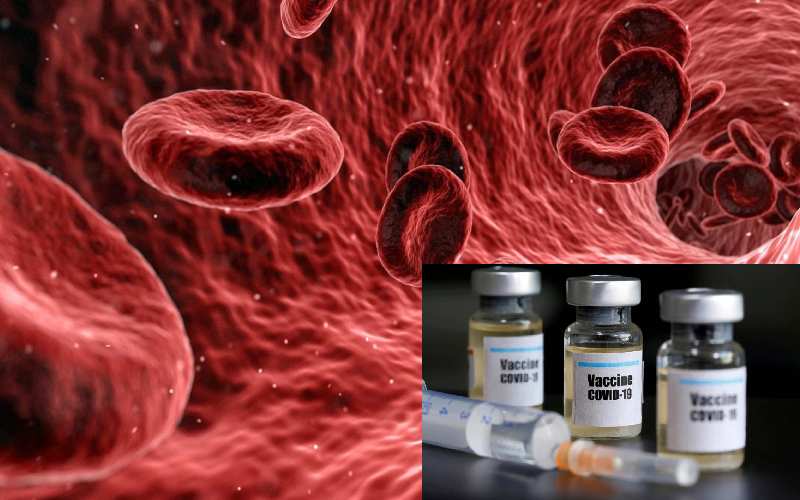
Even as trials for vaccines and drugs against Covid-19 continue, scientists are exploring other ways to stop the global pandemic.
Local experts have now joined in the search for a decades-old method that could be the answer to before the vaccine breakthrough.
This is the use of plasma from a person who has recovered from a disease to treat someone else still battling a similar disease.
Plasma, which forms 55 per cent of blood is the liquid part of blood after red blood cells, white blood cells, and platelets are removed. A huge chunk of it at 90 per cent is water and it helps in body functions like clotting of blood and fighting diseases.
Such kind of treatment has been used before in the treatment of H1N1, Hepatitis B, Ebola and even SARS epidemic in 2003.
When the body is exposed to a foreign pathogen it reacts by producing antibodies, which are like an army that fights these foreign intruders. Once a person recovers, also known as convalesced, the antibodies stick around for a while within the plasma, guarding one in case of a future re-occurrence.
These antibodies can only fight a similar disease, for example, Ebola antibodies cannot be used to fight SARS antibodies. In 2014, during the West African Ebola outbreak, convalescent plasma treatment was used and it was reported to provide good results.
According to CAS Dr Mercy Mwangangi, a study protocol is already being developed by the Government that will allow health experts to look into the use of plasma in the treatment of Covid-19. One hospital in the country is also in the process of seeking approvals for the treatment.
“Under this study, experts will be exploring the possibility of taking the blood of someone who has recovered from Covid-19 and trying to use it as medicine for those who have the moderate condition,” said the CAS.
“We continue to conduct epidemiological research to be able to understand the patterns of this disease and how it spreads. We have a robust team that has been conducting epidemiological modelling and continues to collaborate with the Ministry of Health to inform us,” she added.
Guidelines released
World Health Organisation published guidelines on the use of the treatment method despite it being used in small scale capacity compared to a now large pandemic across the world.
SARS COV-2 remains a new kind of disease worldwide with no vaccine, little research and definitely since no one had been exposed to it before our bodies might not contain the antibodies needed to fight it off.
In the US, the Food and Drug Administration (FDA), a federal agency of the Department of Health and Human Services, announced the initiative to collect convalescent plasma in April and so far over 60 trials have been conducted to determine its effectiveness on Covid-19 patients.
Last week, authorisation of the treatment was put on hold on basis of weak data however on Sunday, FDA published that based on the available scientific evidence the benefits outweigh potential risks.
US President Trump has already authorised emergency use of plasma.
Earlier on the agency had issued an approval to use of malaria drugs hydroxychloroquine and chloroquine but reverted later after the drugs were found to be ineffective towards the treatment of the virus.
Mayo Clinic in the US has been running the convalescent programme on more than 35,000 Covid-19 patients, the majority being on ventilators and ICU. The clinic suggests that plasma administered within three days of diagnosis reduces mortality rates.
Lower death rates
“When calculated a month after the infusions, the death rate of patients who received plasma within three days of diagnosis was lower (21.6 per cent) than it was for those who received plasma later (26.7 per cent).”
However, the study lacks a control group where patients are given a placebo to compare with those given plasma providing a challenge when it comes to assessment by the scientists since it is not clear how realistic treating patients within three days of diagnosis would be given the limited supply of plasma.
The process of donating plasma is similar to how you donate blood. A phlebotomist inserts a needle into an arm vein and your blood is drawn to a machine that separates plasma from the blood. The blood drawn is returned to your body with a saline solution through the needle on your arm while plasma is collected in a different bag.
According to FDA, in order to qualify as a donor, you must be Covid-19 symptom-free for at least 14 days and have a negative Covid-19 test.
 The Standard Group Plc is a multi-media organization with investments in media
platforms spanning newspaper print
operations, television, radio broadcasting, digital and online services. The
Standard Group is recognized as a
leading multi-media house in Kenya with a key influence in matters of national
and international interest.
The Standard Group Plc is a multi-media organization with investments in media
platforms spanning newspaper print
operations, television, radio broadcasting, digital and online services. The
Standard Group is recognized as a
leading multi-media house in Kenya with a key influence in matters of national
and international interest.











